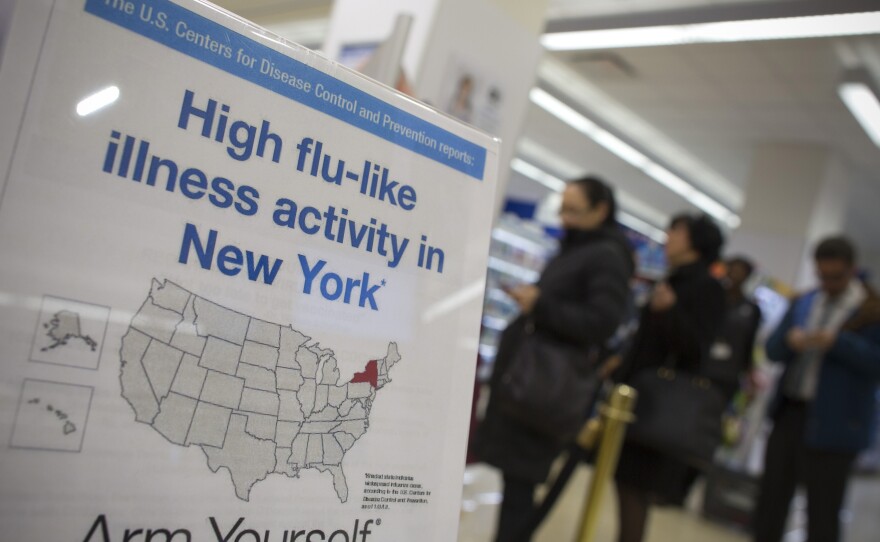Can Google know you're sick before public health officials? That's exactly what the company aims to accomplish with its Google Flu Trends project. But San Diego researchers say Google Flu Trends has some major kinks to work out.
If someone goes to Google and types in "flu symptoms," you might assume they have the flu. But sometimes, search engine traffic doesn't bend to common sense.
"That could be someone just interested in flu symptoms because they read about in in the media," says John Ayers, a researcher at San Diego State University's School of Public Health.
Sure enough, in late 2012 and early 2013, Google Flu Trends vastly overestimated how many people had the flu. It turns out that lots of people Googling phrases like "symptoms of flu" weren't actually sick. Now, Ayers and his colleagues have published a new study that suggests ways to fix those bugs.
Ayers wants to see a model that adapts over time. One that learns to ignore search terms that may spike during flu season — like "gymnastics meet" — but don't actually have anything to do with the spread of influenza. And he wants to see a model that incorporates the more painstakingly gathered data from the Centers for Disease Control.
"We're hoping that our criticism carries some weight, to make people rethink how we deal with big data in public health," says Ayers.
Google doesn't have to adopt any of these changes. As a private company, they closely guard Flu Trends. Ayers says big data holds a lot of promise for tracking the spread of disease. But researchers need to be able to trust the models making sense of it all.






